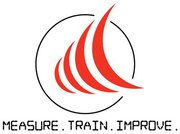 SUNY Fredonia’s Technology Incubator is the new home to The Center for Sports Skill Measurement & Improvement, LLC. The Center’s mission is to help athletes of all levels reach their potential by providing a baseline, sport-specific skill measurement through its network of independent testers. Currently, the center offers test centers in eight states and is focusing initially on baseball and softball players, but has plans to expand into many other sports, including hockey, football, lacrosse, tennis, golf, soccer and field hockey, as well as additional locations, in the near future.
SUNY Fredonia’s Technology Incubator is the new home to The Center for Sports Skill Measurement & Improvement, LLC. The Center’s mission is to help athletes of all levels reach their potential by providing a baseline, sport-specific skill measurement through its network of independent testers. Currently, the center offers test centers in eight states and is focusing initially on baseball and softball players, but has plans to expand into many other sports, including hockey, football, lacrosse, tennis, golf, soccer and field hockey, as well as additional locations, in the near future.
“It used to be that athletes could test their individual athletic skills (40-yard dash, pitch speed, etc.), but they had no way to know how they measured up against their peers,” explains the center’s founder, Kevin Morse. “Data was available, but there was no real follow-through. Now, with our system, any athlete — youth through adult — can know where they stack up against people their age, coast-to-coast.”
Thus, for example, a 15-year-old baseball or softball pitcher can test his or her fastball speed and see where he or she stacks up against other 15-year-old pitchers across the nation.
“With that information, players can begin the process of continually improving their skills, and climbing their respective leaderboards with the recognition and satisfaction that comes with reaching relevant and measurable goals,” Morse adds.
Morse compares his program to a global positioning system (GPS), which first finds one’s location before it determines the best route to reach a destination. “We do the same thing,” he says. “An athlete needs this baseline data in order to know if they are improving. Without it, they are simply guessing and hoping.”
Morse brings a unique combination of baseball training and coaching experience to the center, as well as a graduate degree in International Business and over 15 years of practical, executive-level experience. He is joined by a partner, noted pitching and hitting expert Perry Husband. Based outside of Los Angeles, Husband is a former Division II All-American and has over 15 years of research, teaching and training experience. He has spent much of his time and energy developing programs to measure and maximize ball speed off the bat (exit velocity). Also assisting the center is B.J. Salerno, a four-year starting catcher at St. Bonaventure University (Division-I, Atlantic-10). Morse and Husband have been collaborating and beta testing the program for two years at Morse’s Falconer, N.Y.-based baseball and softball training facility, Southern Tier All-Star Sports, which is home to the region’s test center.
To date, the company has established testing centers in Virginia, North Carolina, Western New York, Kentucky, Missouri, California, Pennsylvania, Ohio and Colorado, and has recently fielded inquiries from Florida, Texas, New Jersey and Rhode Island.
With each new center, the comparative data points available to athletes grow substantially. However, for those hesitating to begin the process until more centers are added, Morse points out the full benefits to the athlete. “The leaderboards are the icing on the cake,” he says. “The boards help motivated and talented players get recognized by college coaches and professional scouts. But, the real value for any athlete lies within the power of the baseline test result.”
Morse explains that testing these skills, combined with solid research-based training, will help players rapidly improve their numbers, and with them, their results on the field.
“A one mile-per-hour (mph) improvement in [bat] exit speed equals five to seven feet on a fly ball,” he says. “Imagine how different a season could be if your son or daughter adds 7, 8 or 10 mph to their exit speed.”
The center is the 14th tenant to join the incubator since it opened 21 months ago. Morse aspires to collaborate with SUNY Fredonia faculty on sport-specific research and provide exciting, valuable experiences to students through paid internships. He is thrilled to be a part of the incubator and its vision to bring companies together to work and grow.
“I believe SUNY Fredonia and Robert Fritzinger, the incubator’s executive director, are developing a unique model that encourages collaboration and, at the same time, respects the demands and needs of each individual entity,” Morse attests. “In a few short months, the incubator has been a catalyst for some explosive growth and opportunities for my company. It is the best move I could have made.”
Fritzinger also sees the strong fit between the two. “The Incubator is all about attracting companies which are poised for substantial growth, and helping them through the process while providing them access to the resources that a nearly 6,000-student institution like SUNY Fredonia can provide,” Fritzinger says. “Morse’s venture has a huge potential market, a declining cost structure, and taps into several trends at the same time. It’s cool. Very cool.”



